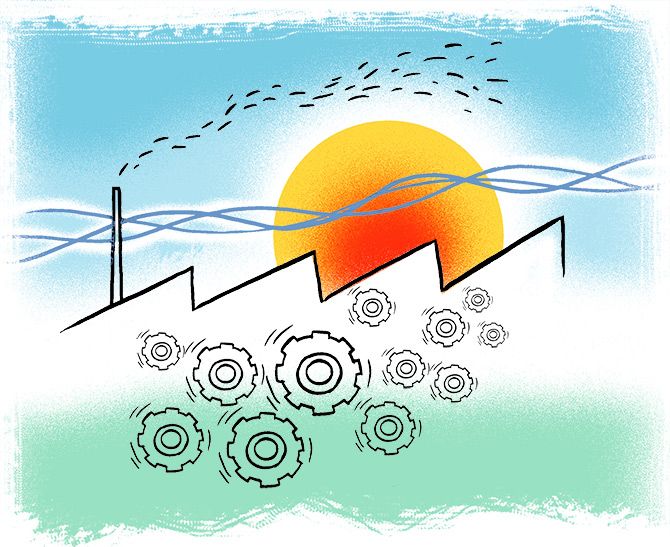India's manufacturing sector growth fell to an eight-month low in September amid softer increase in factory production, sales and new export orders, a monthly survey said on Tuesday.

The seasonally adjusted HSBC India Manufacturing Purchasing Managers' Index (PMI) fell from 57.5 in August to 56.5 in September, registering the weakest pace of growth since January.
In PMI parlance, a print above 50 means expansion, while a score below 50 denotes contraction.
"Momentum in India's manufacturing sector softened in September from the very strong growth in the summer months.
"Output and new orders grew at a slower pace, and the deceleration in export demand growth was especially evident as the new export orders PMI was the lowest since March 2023," Pranjul Bhandari, Chief India Economist at HSBC, said.
The September PMI data revealed a mild setback in manufacturing growth across India.

For the third straight month, rates of expansion in factory production and sales receded.
Moreover, international orders rose at the slowest pace in a year-and-a-half.
On the price front, there were moderate increases in input costs and selling charges.
As a result of rising purchasing prices, as well as greater labour costs and favourable demand conditions, Indian manufacturers marginally increased their charges in September.
According to Bhandari, input prices rose at a faster rate in September, while factory gate price inflation eased, intensifying the compression on manufacturers' margin.
"Weaker profit growth might have an impact on companies' hiring demand, as the pace of employment growth slowed for a third month," Bhandari noted.
Hiring growth also receded in September, reflecting a reduction in the number of part-time and temporary workers.
Going ahead, the overall level of business confidence fell to its lowest since April 2023.
Around 23 per cent of Indian manufacturers forecast output growth in the year ahead, while the remaining firms predict no change.
The HSBC India Manufacturing PMI is compiled by S&P Global from responses to questionnaires sent to purchasing managers in a panel of around 400 manufacturers.











 © 2025
© 2025